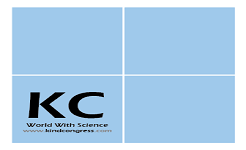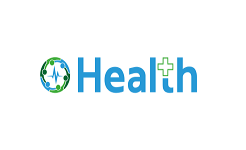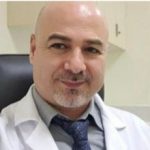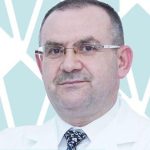Event Date
May 19-20, 2026
Venue
London, UK
– Previous Conference Performers / Professionals From Around The Globe –
Media Partners/Collaborator
A huge thanks to all our amazing partners. We couldn’t have a conference without you!










Sponsors/Exhibitors
A huge thanks to all our amazing partners. We couldn’t have a conference without you!


About Conference
The 07th Edition of the International Conference and Expo on Sports Medicine and Physiotherapy (SportsMed 2026) will bring together leading researchers, clinicians, physiotherapists, sports scientists, academicians, and industry professionals from around the globe to explore the latest advancements in sports health, injury prevention, and rehabilitation science.
ConferenceMinds heartily invites you in the “7th Edition of International Conference on Sports Medicine and Physiotherapy” which is going to be held from May 19-20, 2026 in London, UK.
This two-day event will feature plenary sessions, keynote presentations, panel discussions, workshops, poster sessions, and networking opportunities, offering participants an interactive platform to exchange knowledge and collaborate on future projects.
The conference will cover a range of essential topics, including injury prevention, rehabilitation techniques, musculoskeletal health, sports nutrition, and the integration of advanced technologies like biomechanics and wearable devices. Attendees will have the opportunity to engage in interactive sessions, workshops, and presentations that focus on improving patient outcomes in sports and exercise medicine. Additionally, the conference will highlight innovative treatments and therapeutic interventions to enhance recovery, optimize performance, and prevent injuries.
This event serves as a valuable opportunity for professionals in the field to learn from leading experts, share knowledge, and explore new solutions for treating and preventing sports-related injuries.
Conference Objectives
-
Explore Latest Advances in Sports Medicine:
Discuss innovations in injury prevention, treatment strategies, and rehabilitation protocols for athletes of all levels. -
Promote Evidence-Based Physiotherapy Practices:
Share the latest research and clinical techniques for physiotherapists working with sports injuries, musculoskeletal disorders, and performance enhancement. -
Foster Collaboration Across Disciplines:
Bring together specialists from sports medicine, physiotherapy, orthopedics, and exercise science to exchange ideas and best practices. -
Address Emerging Technologies in Sports Medicine:
Highlight the role of biomechanics, sports analytics, wearable technology, and telehealth solutions in optimizing treatment and performance.
Conference Benefits
-
Cutting-Edge Research and Techniques: Gain insight into the latest developments in sports medicine and physiotherapy, focusing on effective treatments, rehabilitation, and injury prevention strategies.
-
Hands-On Workshops: Participate in interactive sessions and workshops to learn new therapeutic techniques, rehabilitation exercises, and the use of advanced technologies in clinical practice.
-
Networking Opportunities: Connect with fellow practitioners, researchers, and industry leaders, creating new opportunities for collaboration and professional growth.
-
Insight into New Technologies: Learn about the role of wearable devices, biomechanics, and sports performance analytics in advancing the field of sports medicine and physiotherapy.
Who Should Attend
The 07th International Conference and Expo on Sports Medicine and Physiotherapy is ideal for a wide range of professionals and individuals involved in the fields of sports health, rehabilitation, and performance enhancement. Attendees who will benefit from the event include:
-
Sports Medicine Physicians: Doctors specializing in the diagnosis, treatment, and prevention of sports-related injuries and conditions will gain valuable insights into the latest advancements and research in sports medicine.
-
Physiotherapists: Practitioners involved in rehabilitation and recovery, as well as injury prevention, will benefit from discussions on new techniques, evidence-based treatments, and innovative approaches in physiotherapy.
-
Athletic Trainers: Professionals responsible for injury prevention and rehabilitation in sports settings will find practical knowledge and skills to enhance their practice.
-
Sports Scientists and Researchers: Academics and researchers interested in the latest trends, studies, and evidence in sports science, biomechanics, and rehabilitation will have the chance to share their work and learn from cutting-edge research presented at the conference.
-
Sports Coaches: Coaches from all levels of sport can gain a deeper understanding of injury prevention, athlete health management, and performance optimization strategies.
-
Exercise Physiologists: Professionals focused on the relationship between exercise and health will find value in learning how to enhance athlete performance and manage injuries through exercise-based interventions.
-
Orthopedic Surgeons: Surgeons specializing in musculoskeletal injuries and conditions will benefit from discussions on the latest surgical and non-surgical treatment options in sports medicine.
-
Sports Nutritionists/Dietitians: Nutrition professionals working with athletes can learn more about the latest research on nutrition, supplements, and performance enhancement.
-
Rehabilitation Specialists: Professionals focused on post-injury recovery and long-term rehabilitation will gain new tools and methods to help athletes regain mobility and strength.
-
Health and Fitness Enthusiasts: Individuals passionate about sports, fitness, and injury prevention will find the conference informative and educational, offering insights into maintaining an active lifestyle safely.
-
Industry Professionals: Representatives from sports medicine and rehabilitation technology companies, as well as pharmaceutical firms, can engage in networking and discover new products and innovations shaping the future of sports health.
Sessions and Tracks
-
Injury Prevention and Management
- Explore strategies for preventing sports injuries, including proper training techniques, warm-up routines, and the latest research on injury prevention protocols.
-
Sports Rehabilitation Techniques
- Discuss advanced rehabilitation techniques for various injuries, focusing on both conservative and post-surgical recovery approaches.
-
Musculoskeletal Disorders in Athletes
- Examine common musculoskeletal disorders such as tendonitis, ligament sprains, and fractures, and how to manage them in athletic populations.
-
Sports Nutrition and Performance
- Learn the critical role of nutrition in athletic performance, focusing on fueling strategies, hydration, and supplements to optimize performance and recovery.
-
Biomechanics in Sports Medicine
- Investigate the role of biomechanics in injury prevention, performance enhancement, and rehabilitation, including the use of motion analysis and wearable technologies.
-
Sports Psychology and Mental Resilience
- Delve into the psychological aspects of sports, such as mental resilience, motivation, and strategies for coping with injury, stress, and competition.
-
Exercise Physiology and Performance Optimization
- Understand the physiological principles behind exercise, how different training regimens impact performance, and the latest advancements in performance testing and monitoring.
-
Advanced Pain Management Techniques
- Explore the latest pain management strategies for sports injuries, including pharmacological interventions, physical therapy modalities, and alternative approaches like acupuncture and cryotherapy.
-
Kinesiology Taping and Rehabilitation
- Learn the principles and applications of kinesiology taping in injury prevention and rehabilitation, including hands-on sessions to master techniques.
-
Sports Medicine for Endurance Athletes
- Focus on injury prevention, training programs, and recovery strategies tailored to endurance athletes, including marathon runners, cyclists, and swimmers.
-
Orthopedic Approaches to Sports Injuries
- Gain insights into the latest orthopedic treatments and surgical techniques for sports injuries, including joint replacement and minimally invasive procedures.
-
Pediatric Sports Medicine and Developmental Considerations
- Discuss unique challenges and considerations in treating young athletes, including growth plate injuries, long-term development, and prevention of overuse injuries.
-
Technology and Innovation in Sports Medicine
- Explore the cutting-edge technologies revolutionizing sports medicine, such as wearable devices, virtual rehabilitation, and biomechanical analysis tools.
-
Women in Sports Medicine and Physiotherapy
- Address gender-specific challenges in sports medicine, including the treatment of female athletes, hormone influences, and issues like the female athlete triad.
-
Sports Massage and Soft Tissue Therapy
- Delve into the therapeutic use of massage and other soft tissue techniques to alleviate pain, improve circulation, and enhance performance and recovery.
-
Post-Surgical Rehabilitation for Athletes
- Learn the latest protocols for post-surgical rehabilitation, focusing on returning athletes to their optimal performance levels following surgery.
-
Sports Injury and Prevention in Aging Athletes
- Examine how aging affects athletes, the unique risks they face, and how injury prevention and rehabilitation strategies can be adapted for older athletes.
-
Cardiovascular Health in Athletes
- Focus on the importance of cardiovascular health for athletes, including training for heart health, detecting potential cardiovascular risks, and addressing exercise-induced conditions.
-
Muscle Recovery and Regeneration Techniques
- Discuss the most effective methods for muscle recovery, including active recovery, cryotherapy, compression therapy, and nutritional support for muscle regeneration.
-
Ethical and Legal Considerations in Sports Medicine
- Address the ethical challenges and legal issues in sports medicine and physiotherapy, such as informed consent, managing player health, and the responsibilities of sports professionals.
Market Analysis
The sports medicine and physiotherapy market has experienced significant growth over the past decade, driven by an increasing awareness of the importance of physical health, particularly in the context of sports, fitness, and rehabilitation. With a growing global focus on maintaining an active lifestyle and the rising participation in sports across all age groups, the demand for sports medicine and physiotherapy services has surged. This trend is expected to continue, fueled by advancements in treatment technologies, an aging population, and the increasing incidence of sports-related injuries.
A major driver of growth in the market is the rising number of sports injuries, which has prompted a greater need for specialized healthcare services. This includes rehabilitation, physiotherapy, injury prevention, and musculoskeletal treatments. As sports and recreational activities gain popularity globally, both professional athletes and amateurs seek effective treatments for sports-related injuries. This has led to an increased demand for specialized professionals, including sports physicians, physiotherapists, and orthopedic specialists.
The aging population is another contributing factor. As the global population ages, there is a greater focus on active aging, which emphasizes the importance of maintaining physical mobility and managing chronic conditions through exercise and rehabilitation. Older adults are participating in more physical activities, which increases their risk of musculoskeletal injuries, further driving the demand for physiotherapy services and rehabilitation techniques.
Technological advancements in sports medicine, such as the development of wearable devices, virtual rehabilitation platforms, and advanced imaging techniques, are also fueling market growth. These innovations help healthcare providers better diagnose, monitor, and treat injuries, resulting in more efficient care and improved outcomes for patients. The use of regenerative medicine, including stem cell therapies and platelet-rich plasma (PRP) treatments, is also gaining momentum in sports medicine, offering new avenues for healing and injury recovery.
Furthermore, the rise of preventive care, focusing on injury prevention rather than treatment, is a growing trend in the sports medicine industry. This has led to an increase in research, conferences, and educational programs aimed at professionals in the field, as they seek to keep up with the latest trends and technologies in injury prevention and recovery.
The global market for sports medicine and physiotherapy is expected to continue its upward trajectory, with strong growth potential in emerging economies. As healthcare systems worldwide recognize the importance of preventive measures and effective rehabilitation, the demand for sports medicine professionals and services will remain robust.
About Venue
London is the capital city of the United Kingdom and one of the most important cities in the world. It is located in southern England along the River Thames and has a history that goes back over 2,000 years. London is famous for its historic landmarks such as Big Ben, Buckingham Palace, and Tower Bridge, which attract millions of visitors each year.
The city is also a center of culture and education, with world-class museums, theatres, and universities. London is known for its diversity, as people from many countries and cultures live and work there. With its mix of old traditions and modern life, London is a city that continues to influence the world in many ways.
– Tracks & Key Topics –
- Injury Prevention Strategies
- Acute Injury Management
- Chronic Injury Management
- Return-to-Play Protocols
- Sports Rehabilitation Techniques
- Sports Performance Enhancement
- Biomechanics of Athletic Movement
- Muscle and Joint Injury Diagnosis
- Advanced Imaging Techniques (MRI, CT, Ultrasound)
- Sports Nutrition and Supplementation
- Hydration Strategies for Athletes
- Performance Monitoring and Assessment
- Psychological Aspects of Sports Injuries
- Heat Stress and Temperature Regulation
- Concussion Management and Protocols
- Overuse Injuries in Athletes
- Rehabilitation of Ligament Injuries (e.g., ACL)
- Tendinopathy and Tendon Rehabilitation
- Regenerative Medicine (e.g., PRP, Stem Cells)
- Orthotic and Prosthetic Interventions
- Surgical vs. Non-Surgical Treatment Options
- Sports Medicine in Pediatrics
- Sports Medicine in Geriatrics
- Management of Chronic Conditions (e.g., Diabetes, Asthma)
- Injury Risk Assessment and Prevention
- Sports Medicine for Female Athletes
- Sports Medicine for Elite Athletes
- Rehabilitation of Fractures
- Functional Movement Screening
- Injury Prevention Programs
- Sports Medicine and Exercise Physiology
- Alternative Therapies (e.g., Acupuncture, Chiropractic)
- Sports Medicine and Genetics
- Ethics in Sports Medicine
- Sports Medicine and Telehealth
- Collaborative Care in Sports Medicine
- Emerging Technologies in Sports Medicine
- Sports Medicine for Paralympic Athletes
- Injury Management in Contact Sports
- Management of Muscle Strains and Sprains
- Preventive Strategies for Sports Injuries
- Sports Medicine in Occupational Health
- Sports Medicine for Endurance Athletes
- Innovations in Sports Injury Diagnostics
- Sport-Specific Injury Prevention Strategies
- Fundamentals of Physiotherapy
- Manual Therapy Techniques
- Electrotherapy and Modalities
- Rehabilitation of Musculoskeletal Disorders
- Neurological Rehabilitation
- Cardiopulmonary Physiotherapy
- Pediatric Physiotherapy
- Geriatric Physiotherapy
- Orthopedic Physiotherapy
- Sports Physiotherapy
- Post-Surgical Rehabilitation
- Pain Management Techniques
- Functional Independence Training
- Postural Analysis and Correction
- Core Stability and Strengthening
- Therapeutic Exercise Prescription
- Gait Analysis and Training
- Manual Muscle Testing
- Body Mechanics and Ergonomics
- Hydrotherapy and Aquatic Therapy
- Vestibular Rehabilitation
- Breathing and Respiratory Exercises
- Rehabilitation for Arthritis and Joint Disorders
- Cognitive Rehabilitation Therapy
- Integrative and Complementary Therapies
- Patient Education and Self-Management
- Injury Prevention in Physiotherapy
- Pain Science and Education
- Psychosocial Aspects of Rehabilitation
- Rehabilitation for Chronic Conditions
- Balance and Fall Prevention Programs
- Electromyography (EMG) in Physiotherapy
- Functional Training and Rehabilitation
- Sports-Specific Physiotherapy Techniques
- Developmental Physiotherapy in Children
- Community-Based Rehabilitation
- Telehealth and Remote Physiotherapy
- Management of Soft Tissue Injuries
- Utilization of Assistive Devices and Technologies
- Rehabilitation for Neuromuscular Disorders
- Dynamic Assessment and Progress Monitoring
- Outcome Measures and Evaluation Tools
- Therapeutic Taping and Bracing
- Evidence-Based Practice in Physiotherapy
- Research Methods and Clinical Trials in Physiotherapy
- Professional Development and Continuing Education
- Ethics and Professionalism in Physiotherapy
- Multidisciplinary Approaches in Rehabilitation
- Rehabilitation for Complex Cases
- Manual Therapy for Spinal Disorders
- Innovative Physiotherapy Techniques and Trends
- Home-Based Rehabilitation Programs
- Telehealth Applications in Physiotherapy
- Pre- and Post-Operative Physiotherapy
- Health Promotion and Wellness Programs










































